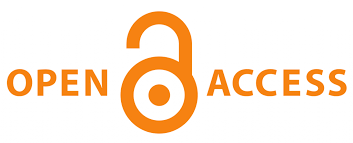Model of interaction between laser radiation and metal powder composition during direct laser growth
- Authors: Balyakin A.V.1
-
Affiliations:
- Samara National Research University
- Issue: Vol 23, No 4 (2024)
- Pages: 99-111
- Section: MECHANICAL ENGINEERING
- URL: https://journals.ssau.ru/vestnik/article/view/28068
- DOI: https://doi.org/10.18287/2541-7533-2024-23-4-99-111
- ID: 28068
Cite item
Full Text
Abstract
This paper presents a model for analyzing the interaction of laser radiation and a metal-powder composition in the process of direct laser growing of large-sized combustion chambers of gas turbine engines. The metal-powder composition is fed into the melting zone coaxially with laser radiation; the task is to completely melt the powder with laser radiation before it enters the melt bath on the construction platform. The laser radiation is absorbed as it passes through the gas-powder jet, and its energy is also used to melt the construction platform or the previous layer. Thus, in order to determine the parameters of the operating conditions that provide the possibility of melting powder particles, it is necessary to determine the boundaries of the parameters at which each particle of the metal-powder composition completely melts in a gas-powder jet. To simulate heat transfer inside a particle, the
Beer – Lambert laser radiation absorption law was used using the lumped parameter approach. The required energy for melting the powder material was determined through enthalpy. The resulting one-dimensional differential equation of enthalpy increment is solved numerically by the Euler method. Using this model, the distance from the point of origin of the interaction of the laser beam with a metal-powder composition to the zone of its complete melting was determined and the effect of the velocity of the gas-powder jet, the power of laser radiation, the bulk density of the metal-powder composition and the average radius of the powder particles on the distance to the zone of complete melting was studied.
About the authors
A. V. Balyakin
Samara National Research University
Author for correspondence.
Email: balaykinav@ssau.ru
ORCID iD: 0000-0002-1558-1034
Senior Lecturer of the Department of Engine Production Technology
Russian FederationReferences
- Gibson I., Rosen D., Stucker B. Additive manufacturing technologies: 3Dprinting, rapid prototyping, and direct digital manufacturing, second edition. New York: Springer, 2015. 498 p. doi: 10.1007/978-1-4939-2113-3
- Alekseev V.V., Bobrov A.N., Kalugin K.S. Study of complex strength characteristics of gas turbine models fabricated by additive methods. Vestnik Moskovskogo Aviatsionnogo Instituta. 2019. V. 26, no. 2. Р. 43-50. (In Russ.)
- Smelov V.G., Kokareva V.V., Chupin P.V., Dmitriev D.N. Technological process design for selective laser fusion of a heat-resistant alloy for the burner device manufacturing. Vestnik Moskovskogo Aviatsionnogo Instituta. 2023. V. 30, no. 1. Р. 131-141. (In Russ.). doi: 10.34759/vst-2023-1-131-141
- Balyakin А.V., Oleynik М.А., Zlobin E.P., Skuratov D.L. A review of hybrid additive manufacturing of metal parts. Vestnik of Samara University. Aerospace and Mechanical Engineering. 2022. V. 21, no. 2. P. 48-64. (In Russ.). doi: 10.18287/2541-7533-2022-21-2-48-64
- Smurov I.Yu., Konov S.G., Kotoban D.V. On the implementation of additive technologies and manufacturing into the Russian industry. Novosti Materialovedeniya. Nauka i Tekhnika. 2015. No. 2 (14). Р. 11-22. (In Russ.)
- Kravchuk A.D., Maryakhin A.D., Potapov A.A., Panchenko V.Ya., Komlev V.S., Novikov M.M., Okhlopkov V.A., Duvidzon V.G., Latyshev Ya.A., Chelushkin D.M., Chobulov S.A., Aleksandrov A.P., Shkarubo A.N. Primenenie additivnykh tekhnologiy v neyrokhirurgii. Materialy V Mezhdunarodnoy Konferentsii «Additivnye Tekhnologii: Nastoyashchee i Budushchee» (March, 22, 2019, Moscow). Moscow: VIAM Publ., 2019. P. 253-274. (In Russ.)
- Larionov M.A., Gusev D.V., Shevchuk E.O. Surface roughness improvement of parts made of polymeric materials obtained by means of additive technologies. Bulletin of Bryansk State Technical University. 2021. No. 7 (104). Р. 12-18. (In Russ.). doi: 10.30987/1999-8775-2021-7-12-18
- Belov P.S. Influence of post-processing parameters on the surface roughness of products obtained by additive technologies. Vestnik MSTU «Stankin». 2019. No. 1 (48). Р. 57-61. (In Russ.)
- Zemlyakov E.V., Tuominen J., Pozdeeva E.Yu., Turichin G.A., Komarova E.A. Formation of surface layers during laser cladding using a powerful fiber laser. St. Petersburg State Polytechnical University Journal. 2013. No. 1 (166). Р. 231-236. (In Russ.)
- Olshanskaya T. V., Salomatova E. S. Review of modern methods of management of the electron beam when the electron-beam welding. Bulletin PNRPU. Mechanical Engineering, Materials Science. 2016. V. 18, no. 4. Р. 169-187. (In Russ.). doi: 10.15593/2224-9877/2016.4.13
- Balyakin A.V. Process of direct laser growth of heat-resistant alloy: influence of power and heat treatment on microstructure and mechanical characteristics. Bulletin of the Siberian State Industrial University. 2023. No. 4 (46). P. 64-78. (In Russ.). doi: 10.57070/2304-4497-2023-4(46)-64-78
- Maksimov P.V., Smetannikov O.Yu. Chislennoe modelirovanie ostatochnykh napryazheniy v aviatsionnykh detalyakh, proizvedennykh metodami additivnogo posloynogo sinteza. Proceedings of the XXI International Conference on Computational Mechanics and Modern Applied Software Systems (CMMASS'2019) (May, 24-31, 2019, Alushta, Crimea). Moscow: MAI Publ., 2019. Р. 299-301. (In Russ.)
- Toyserkani E., Khajepour A., Corbin S. 3-D finite element modeling of laser cladding by powder injection: effects of laser pulse shaping on the process. Optics and Lasers in Engineering. 2004. V. 41, Iss. 6. P. 849-867. doi: 10.1016/S0143-8166(03)00063-0
- Vastola G., Zhang G., Pei Q.X., Zhang Y.-W. Controlling of residual stress in additive manufacturing of Ti6Al4V by finite element modeling. Additive Manufacturing. 2016. V. 12, Part B. P. 231-239. doi: 10.1016/J.ADDMA.2016.05.010
- Cao X., Ayalew B. Control-oriented MIMO modeling of laser-aided powder deposition processes. Proceedings of the American Control Conference (July, 01-03, 2015, Chicago, IL, USA). 2015. P. 3637-3642. doi: 10.1109/ACC.2015.7171895
- Hoadley A.F.A., Rappaz M. A thermal model of laser cladding by powder injection. Metallurgical Transactions B. 1992. V. 23. P. 631-642. doi: 10.1007/BF02649723
- Ganeriwala R.K., Strantza M., King W.E., Clausen B., Phan T.Q., Levine L.E., Brown D.W., Hodge N.E. Evaluation of a thermomechanical model for prediction of residual stress during laser powder bed fusion of Ti-6Al-4V. Additive Manufacturing. 2019. V. 27. P. 489-502. doi: 10.1016/j.addma.2019.03.034
- Hodge N.E., Ferencz R.M., Vignes RM. Experimental comparison of residual stresses for a thermomechanical model for the simulation of selective laser melting. Additive Manufacturing. 2016. V. 12, Part B. P. 159-168. doi: 10.1016/j.addma.2016.05.011
- Lu X., Lin X., Chiumenti M., Cervera M., Hu Y., Ji X., Ma L., Yang H., Huang W. Residual stress and distortion of rectangular and S-shaped Ti-6Al-4V parts by directed energy deposition: Modelling and experimental calibration. Additive Manufacturing. 2019. V. 26. P. 166-179. doi: 10.1016/j.addma.2019.02.001
- Kostenkov S.N., Kharanzhevskii E.V., Krivilev M.D. Determination of characteristics of laser radiation interaction with nanocomposite powder materials. Physics of Metals and Metallography. 2012. V. 113, Iss. 1. Р. 93-97. doi: 10.1134/S0031918X12010061
- Sytschev A.E., Vadchenko S.G., Boyarchenko O.D., Vrel D., Sachkova N.N. SHS joining of Ti-Al and Ni-Al intermetallics to mechanoactivated Ti and Ni substrates. Perspektivnye Materialy. 2012. No. 2. Р. 15-20. (In Russ.)
- Qi H., Mazumder J., Ki H. Numerical simulation of heat transfer and fluid flow in coaxial laser cladding process for direct metal deposition. Journal of Applied Physics. 2006. V. 100, Iss. 2. doi: 10.1063/1.2209807
- Liu Ch.-Y., Lin J. Thermal processes of a powder particle in coaxial laser cladding. Optics and Laser Technology. 2003. V. 35, Iss. 2. P. 81-86. doi: 10.1016/S0030-3992(02)00145-7
- Bergman T.L., Lavine A.S., Incorpera F.P., DeWitt D.P. Fundamentals of heat and mass transfer. Hoboken, NJ: John Wiley & Sons, 2011. 1080 p.
Supplementary files





















